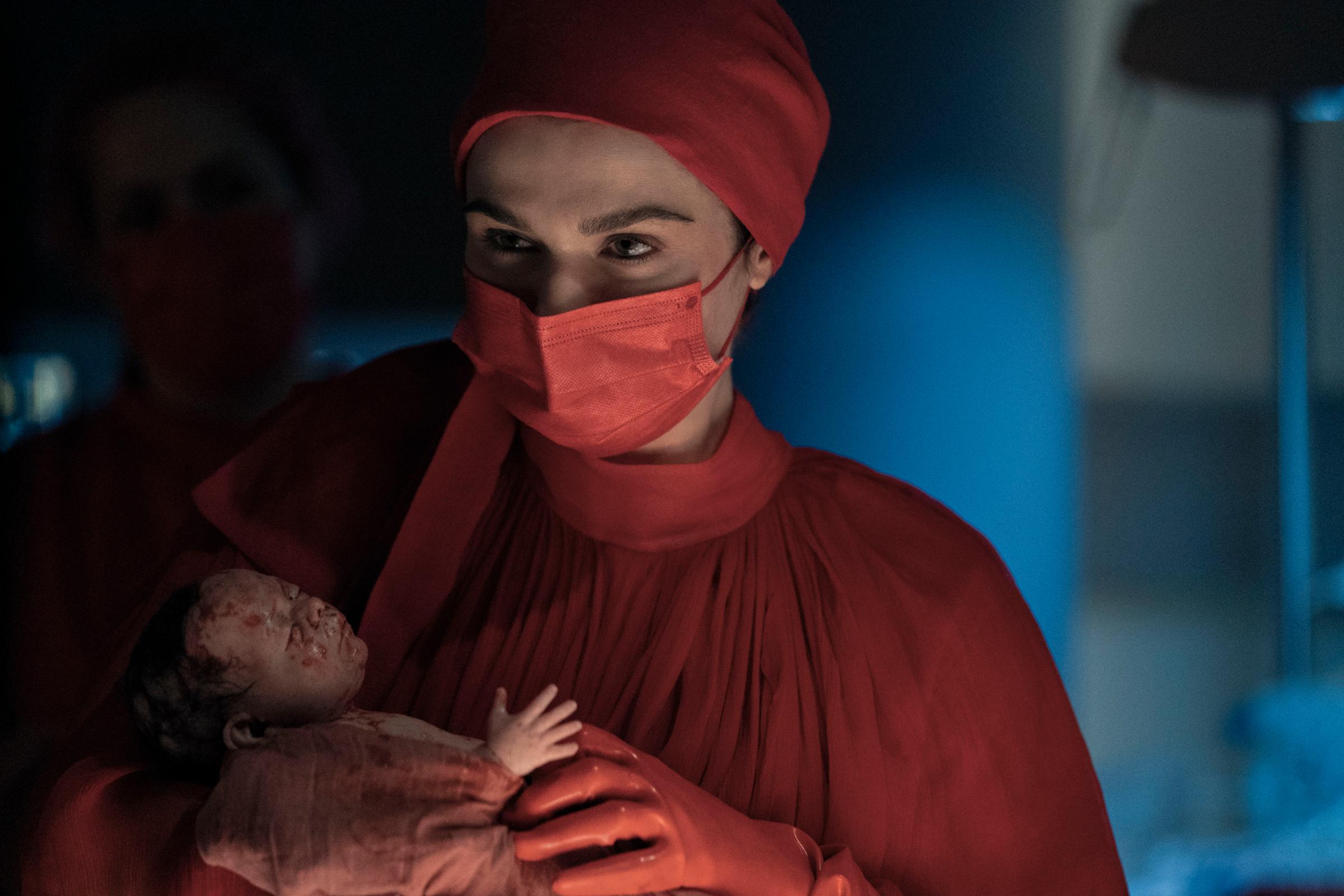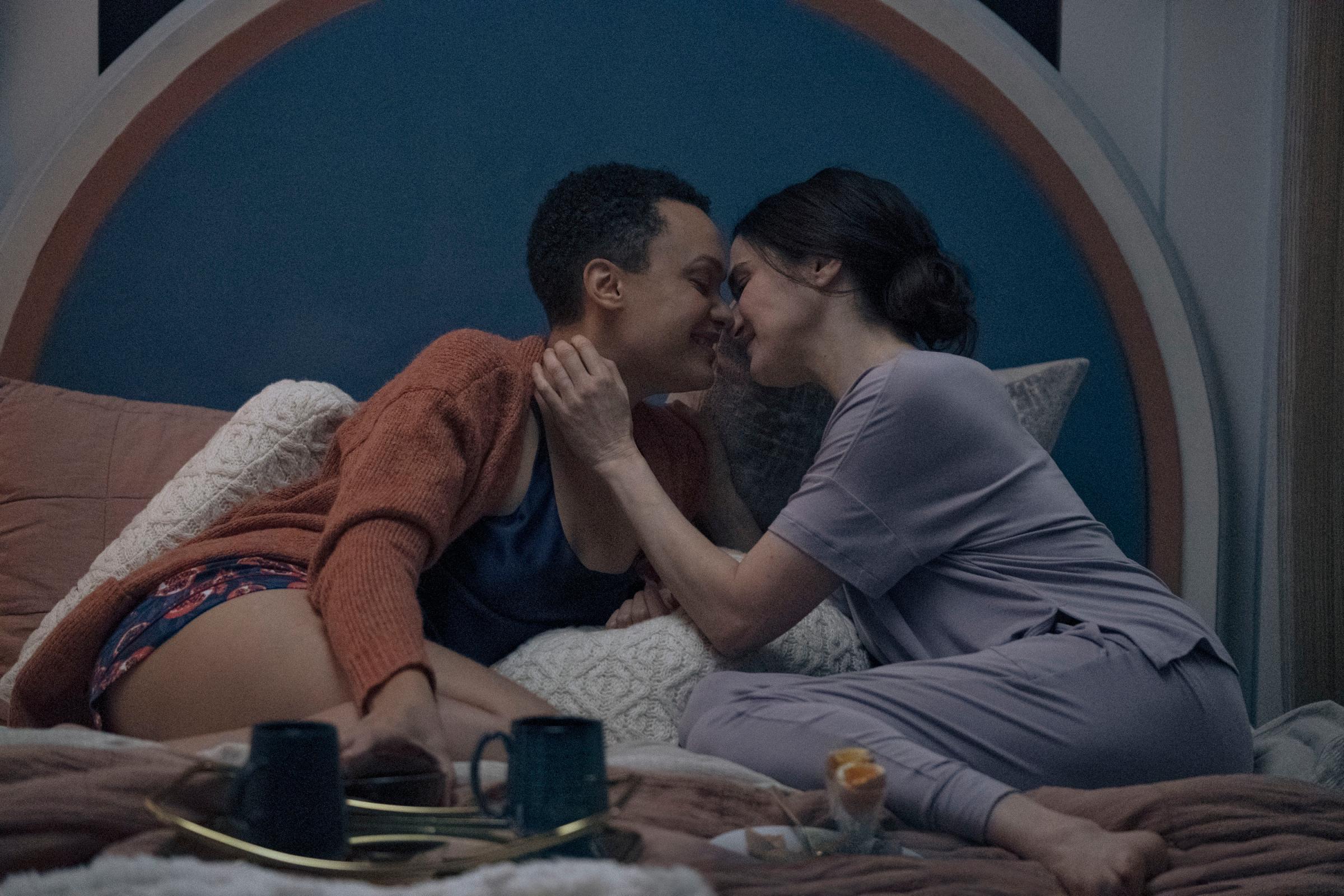Amazon’s Dead Ringers should have been terrible. A reboot of David Cronenberg’s twisted 1988 psychological thriller on a mass-market platform? I haven’t been optimistic about that kind of project in at least a decade. Let me count the reasons: Paramount Network’s controversy-thirsty Heathers, HBO’s galaxy-brain Westworld, Syfy’s lifeless Day of the Dead resurrection, Showtime’s deeply unsexy American Gigolo. For every solid TV adaptation of a cult-classic film—FX’s Fargo, say—there’s a pile of others that never should’ve been attempted. And, as the body-horror maestro’s adoring fan base knows, there is only one Cronenberg.
Yet somehow Dead Ringers, premiering April 21, works spectacularly. In fact, it feels even more subversive than the original, a ripped-from-the-headlines psychosexual horror odyssey about identical-twin gynecologists Elliot and Beverly Mantle—played by Jeremy Irons, in a chilling dual performance—and the woman who threatens to tear them apart. Executive producer and showrunner Alice Birch, whose impressive list of credits includes Succession, Conversations with Friends, and Normal People as well as the films Lady Macbeth and The Wonder, recasts the Mantles (without changing their names) as women. But this is no trendy, girl-power gender flip. It’s an inspired choice, in part because it allows Birch to cast the versatile Rachel Weisz as the twins and in part because it submerges the story in the bloody realities of women’s bodies, appetites, and ambitions to an extent that couldn’t be done with male doctors.

As in the movie, Beverly and Elliot are codependent opposites. They live together in a luxe Manhattan apartment and work side-by-side out of a hospital. Beverly is the shy, introverted, principled one. Negligibly older than her twin, wild Elliot—who parties all night, sleeps with strange men, drinks to excess, snorts pills, etc.—calls Beverly “baby sister” and would do anything to satisfy her. That includes swapping identities, at work and beyond, whenever she feels overwhelmed. One fateful switcheroo occurs when Beverly is too timid to examine a lovely TV actress, Genevieve (Britne Oldford), and Elliot steps in, not only completing the appointment, but also meeting Genevieve for drinks later and successfully paving the way for Beverly to sleep with her crush. Elliot is always announcing her intention to “get” things for Beverly. Like the embryos Beverly keeps trying and failing to carry past the first trimester. What Elliot doesn’t count on is Beverly developing feelings for Genevieve that may threaten the twins’ tandem lives.
Another object of their shared desire is a deluxe new facility where they can practice cutting-edge maternal medicine. Beverly envisions a birthing center where women can enjoy serene, bespoke delivery experiences, instead of the messy, chaotic ones that viewers witness in all their gore and pathos in the hospital maternity ward. Elliot is an envelope-pushing fertility researcher who wants a lab that can accommodate her unfettered experimentation. The woman with the funds to bankroll both dreams is Rebecca Parker (Jennifer Ehle), an ice-cold heiress from a notorious opioid-profiteer dynasty who’s had multiple children via surrogate with the Mantles’ grudging help. But first they have to prove they can hang with her creepy entourage of biohackers and wellness weirdos—people whose idea of casual dinner-party chit chat is: “My aim is to be so far ahead of the field that the FDA doesn’t have a f-ckin’ clue how to regulate.”

Weisz plays brilliantly off herself; it’s always apparent which twin is in the frame, whether it’s Elliot or Beverly or Elliot impersonating Beverly. The show transforms into a stylish nightmare, grounded in the real, physical as well as subconscious, messiness at the intersection of science and motherhood and sisterhood and technology and money and morality, whenever the Mantles are alone (separately or together). Yet Dead Ringers is smartest, and often devilishly funny, in its many tableside conversations in Rebecca’s rarefied world. Whether they’re set at a trendy Manhattan restaurant or the dining room of a Southern mansion, these scenes plausibly give voice to all sides of debates at the cutting edge of maternal medicine. Too rich or high on their own delusions to bite their tongues, the Parkers and their friends say all the quiet parts loud about abortion rights, experimentation without patient consent, unequal access to quality care. (Better Call Saul fans, look out for a scenery-chewing guest appearance from Michael McKean.)
Occasionally, the social commentary is awkwardly placed. A late-season episode that highlights the shameful connection between early gynecological breakthroughs and the bodies of enslaved Black women feels shoehorned in, when such a consequential theme could’ve been integrated much earlier. On the whole, though, this is an extraordinary series, one that—like Lady Macbeth and too few examples of streaming-era horror TV—locates subtlety, humor, beauty, and the contradictions of womanhood in the most operatically unhinged of stories. Preserving the skeleton of Cronenberg’s film, with its stylized sets and campy tone, Birch fleshes out Dead Ringers by widening its thematic scope and injecting a brand of delivery-room realism that heightens its shock value. You’ll never look at a sonogram the same way again.
More Must-Reads from TIME
- Donald Trump Is TIME's 2024 Person of the Year
- Why We Chose Trump as Person of the Year
- Is Intermittent Fasting Good or Bad for You?
- The 100 Must-Read Books of 2024
- The 20 Best Christmas TV Episodes
- Column: If Optimism Feels Ridiculous Now, Try Hope
- The Future of Climate Action Is Trade Policy
- Merle Bombardieri Is Helping People Make the Baby Decision
Contact us at letters@time.com